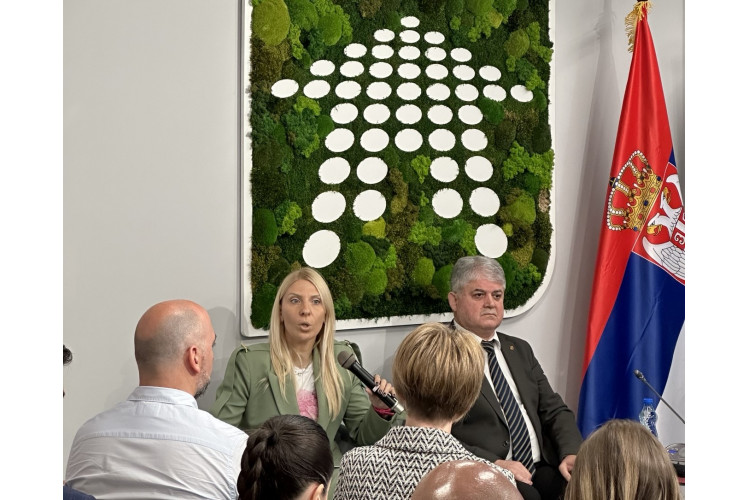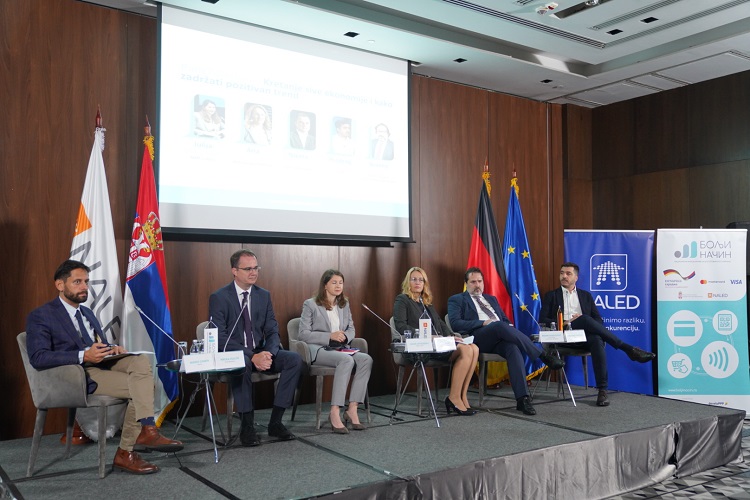For better border procedures, digitalization and strengthening inspections are crucial
For the improvement of border procedures, digitalization of inspection authorities work, their training and strengthening, as well as connecting with laboratories, customs, and freight forwarders, along with harmonizing legislative regulations and working on certificate recognition, were recognized as crucial by representatives of relevant institutions and businesses at the meeting of NALED's fair competition Alliance.
Measures were discussed at the meeting to alleviate pressure on regulatory authorities and company costs, especially concerning the import and export of food. One highlighted issue is the occasional inability to precisely determine which inspection authority is competent in a specific situation and for a particular type of product. Depending on whether the product is of plant, animal origin, or mixed food, the Ministry of Agriculture is responsible, either through veterinary, phytosanitary, or agricultural inspections, while the control of children's food and dietary products falls under the jurisdiction of the Ministry of Health through sanitary inspection.
The President of the Alliance and CEO of Atlantik Group, Zoran Daljević, emphasized that digitalization is key to speeding up procedures since all information would be centralized.
"Last year, on average, we waited up to 10 days for phytosanitary inspection permits from the moment of sampling, and 14 days for sanitary permits. We've all witnessed truck queues at the border with Croatia extending all the way to the toll booth. By digitalizing customs, inspections, and laboratories, and by at least mutually recognizing certificates within CEFTA, procedures would significantly speed up, easing pressure on the economy and avoiding stockpiling of goods," said Daljević, highlighting the importance of aligning regulations with EU countries, where 60% of our exports are placed.
Daljević also pointed out the significant personnel deficit in inspections, a matter also addressed by Goran Stamenković, assistant minister of health and head of the inspection oversight sector.
"There's a massive number of vacancies, for example, in the border sanitary inspection Department, as much as 50%. If you have 100 out of 270 inspector positions vacant, it's clear what challenges we face in organizing work. The reform of inspection services began several years ago; we expect amendments to the Inspection oversight law, hoping it will soon be on the agenda after the formation of the new government. Digitalization of border sanitary inspection is also planned," emphasized Stamenković, announcing the update of the list of authorized and accredited laboratories for sample collection.
Jelena Mićić, head of the competitiveness unit at NALED and coordinator of the fair competition Alliance, emphasized that representatives of the organization will consider participating in the work of the National trade facilitation coordination body in the upcoming period. Aleksandar Simić from the Secretariat of this body cited data from a world bank study suggesting that the GDP growth of western balkan countries would be around three percent if waiting time for trucks at borders were reduced by three hours daily.
In addition to Stamenković, Daljević, and Simić, the meeting of the fair competition Alliance also involved Mirjana Veljković, Chief of the Border Sanitary Inspection, Danijela Živanović from the directorate for veterinary medicine of the Ministry of agriculture, forestry, and water management, and Aleksandra Bauer from SP Laboratory. Zoran Daljević also presented the results of the implementation of the Action plan to combat the gray economy."







